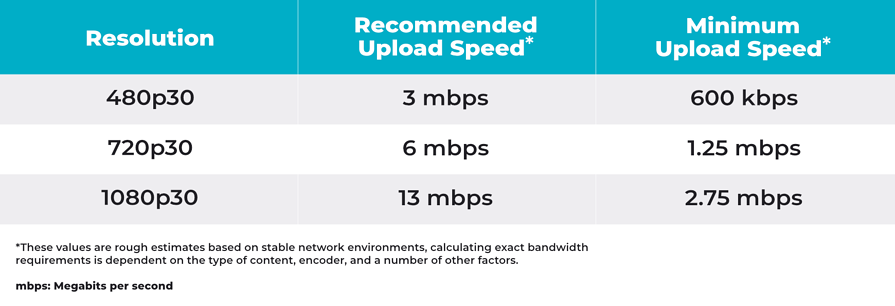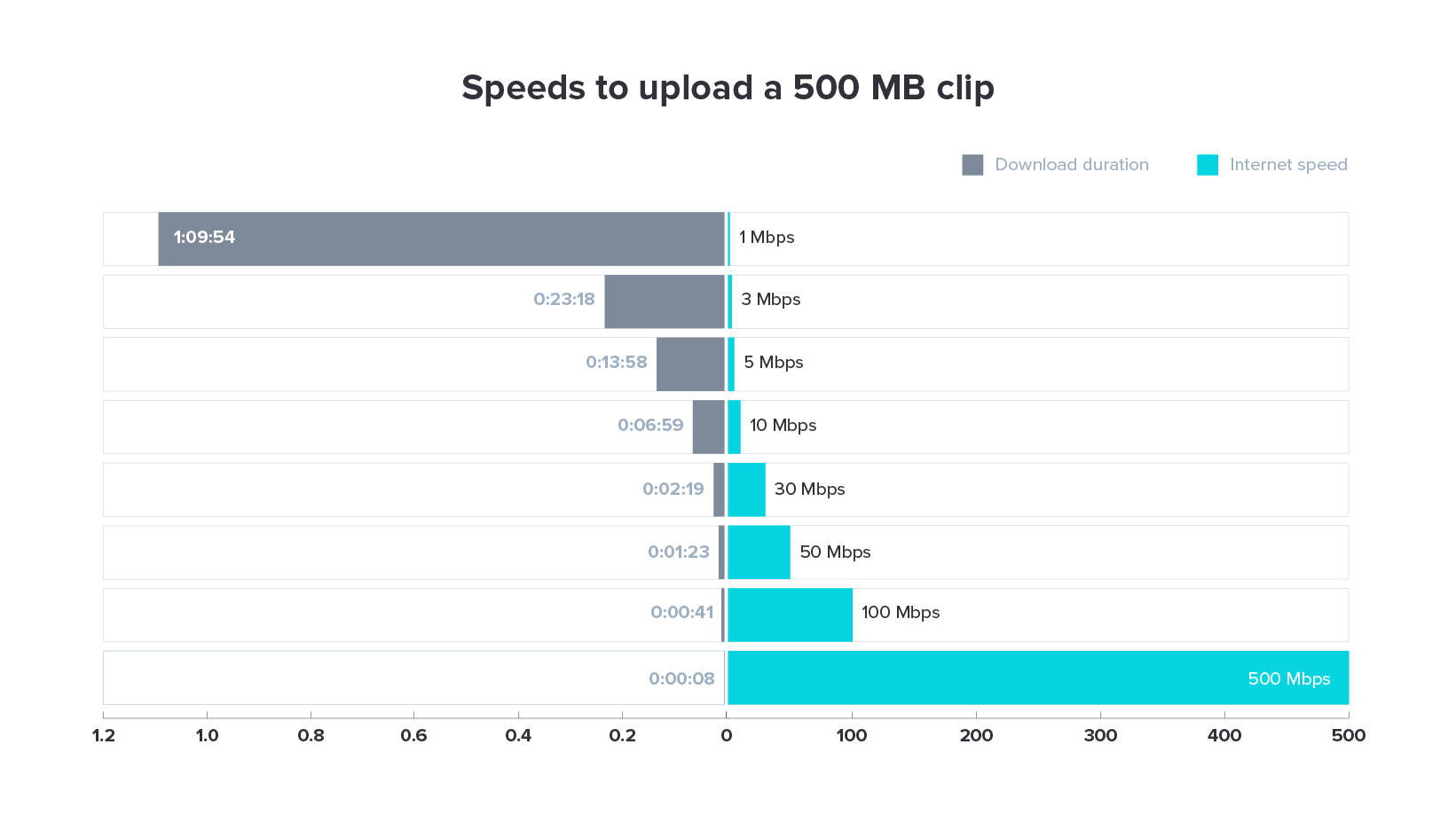How to Select the Right Internet Plan Based on Megabits Per Second
How to Select the Right Internet Plan Based on Megabits Per Second
Blog Article
Exactly How Megabits Per Second Effect Your Online Activities
The idea of megabits per second (Mbps) plays a crucial role in shaping our online experiences. As digital activities proliferate, understanding the implications of Mbps on gaming, video clip, and streaming conferencing comes to be increasingly vital. Greater Mbps can improve efficiency and reduce interruptions, while poor rates may foster stress and inadequacy. Examining your family's particular needs in connection with these rates is important, particularly as numerous gadgets try bandwidth. The subtleties of exactly how Mbps affects numerous online activities require more exploration, particularly as our dependence on digital connectivity continues to develop.
Recognizing Megabits Per Second
When taking into consideration internet rate, it's necessary to understand the principle of megabits per second (Mbps), which acts as a basic dimension for data transfer rates. This statistics quantifies just how much data can be sent over an internet connection in one second, giving a clear understanding of efficiency capacities - Megabits Per Second. For context, one megabit amounts to one million little bits, and Mbps is typically utilized to share data transfer for different on the internet tasks
A higher Mbps suggests a much faster internet link, enabling individuals to perform jobs such as downloading and install documents, browsing web sites, and participating in online gaming a lot more successfully. As an example, common surfing calls for around 1-5 Mbps, while streaming high-def video clip might demand 5-25 Mbps. Comprehending these needs is crucial for identifying the appropriate internet speed needed for specific activities.
Additionally, the number of devices connected to a network can affect general performance. Several customers streaming, pc gaming, or downloading and install simultaneously can stress readily available bandwidth, causing slower speeds - Megabits Per Second. Evaluating personal online habits and requirements is vital in picking a net plan that aligns with one's demands, making certain a smooth electronic experience
Streaming and Buffering Issues
Streaming high-definition content has come to be a staple of modern-day on the internet amusement, yet it is usually come with by irritating buffering problems. These disruptions can substantially detract from the viewing experience, bring about frustration and prospective loss of audience involvement. Buffering takes place when the information transferred from the streaming solution is not gotten rapidly sufficient to preserve a smooth playback, frequently as a result of inadequate internet rate determined in megabits per second (Mbps)

Additionally, real-time streaming can be impacted by network congestion, which occurs when multiple tools share the exact same data transfer. Optimizing connection rate and making sure ample Mbps is important for a seamless streaming experience. As streaming solutions proceed to evolve, understanding the influence of Mbps on buffering problems remains essential for consumers seeking nonstop enjoyment.
Online Video Gaming Performance
The influence of net rate on on-line tasks extends beyond streaming, significantly affecting on-line gaming efficiency. In competitive video gaming, low latency and high transmission capacity are vital for a seamless experience. A quick connection reduces lag, allowing gamers to respond quickly to in-game occasions, which can be the difference in between triumph and loss.
Data transfer, measured in megabits per second (Mbps), plays an essential function in sustaining multiple gadgets and video gaming systems all at once. Insufficient data transfer can lead to dropped links or reduced video game high quality, adversely affecting gameplay. For example, on-line multiplayer games require considerable data transfer, specifically during peak video gaming hours when many gamers are online.
Fast-paced first-person shooters demand higher speeds to keep responsiveness, while turn-based approach games may operate moderately well on lower speeds. As on-line pc gaming continues to evolve, with increasing visual fidelity and even more complicated multiplayer atmospheres, the demand for greater Mbps will only magnify.
Video Clip Conferencing High Quality
In today's digital landscape, video conferencing top quality is greatly influenced by over here net speed, particularly in regards to bandwidth and latency. Top quality video clip calls need sufficient transmission capacity to transfer sound and video information seamlessly. Typically, a minimum of 1.5 Mbps upload and download rates is recommended for typical meaning video clip, while high-definition video clip conferencing normally requires at the very least 3 Mbps.
Latency, or the hold-up between sending out and receiving information, also plays a critical role in the click for source individual experience. Reduced latency makes sure that discussions flow normally without uncomfortable stops briefly or disturbances. Ideally, latency needs to be below 150 milliseconds for reliable communication. Greater latency can cause echo, lag, and disjointed interactions, which can prevent collaboration and interaction throughout meetings.
Moreover, several individuals in a video clip meeting can strain available data transfer, requiring even higher speeds. Network congestion, commonly triggered by synchronised tasks like streaming or downloading, can further deteriorate video high quality. Therefore, for companies counting on video clip conferencing for remote partnership, recognizing the partnership in between megabits per overall and second interaction high quality is necessary for preserving productivity and improving online communications.
Choosing the Right Internet Plan
Choosing a proper web plan is vital for making certain optimal efficiency in different on the internet tasks, specifically in setups that demand high data transfer, such as video conferencing and online gaming. Megabits Per Second. When thinking about an internet plan, it is important to evaluate both the rate and information allocation to match your details use requirements
For homes with multiple customers participating in simultaneous activities, a plan supplying greater megabits per second (Mbps) is recommended. Typically, a minimum of 25 Mbps appropriates for typical streaming and surfing, while strategies exceeding 100 Mbps are preferable for even more intensive tasks. In addition, think about the nature of your online activities; video conferencing requires a minimum of why not look here 1.5 Mbps publish speed, while on-line video gaming might require a lower latency yet constant connection.
Unlimited data strategies can stop throttling and disruptions, specifically if hefty usage is expected. By attentively selecting a web strategy customized to your requirements, you can improve your on-line experience, ensuring smooth, nonstop access to your favored tasks.
Conclusion
In verdict, the significance of megabits per second (Mbps) fit online activities can not be overstated. Higher Mbps facilitates seamless streaming, decreases buffering, enhances gaming experiences, and guarantees high-quality video conferencing. Conversely, inadequate bandwidth can lead to aggravating interruptions and decreased performance across numerous jobs. Consequently, a thorough understanding of specific or house Mbps needs is necessary for selecting an appropriate net strategy that effectively supports diverse online tasks and customer needs.

Commonly, a minimum of 25 Mbps is ideal for common streaming and browsing, while strategies going beyond 100 Mbps are more effective for more intensive jobs. In addition, think about the nature of your online activities; video conferencing calls for at the very least 1.5 Mbps submit speed, while on the internet video gaming might need a lower latency yet regular link.
Report this page